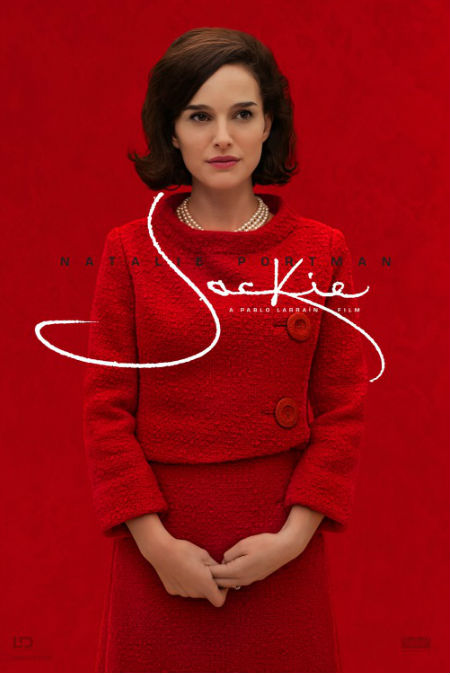
History, it is oft remarked, is written by the victors.
But as Jackie, directed with restrained eloquence by Pablo Larrain, demonstrates throughout its sublimely meditative length, it can occasionally be written be written by those who may be deemed, in whole or in part, to be its victims.
It is odd to think of Jacqueline Kennedy in this way given that for a time, during the heady days of Camelot when the Kennedy family had finally attained their Holy Grail of the US Presidency, she was far from a martyr in waiting.
Rather she was the glamorous face of a young and vital administration, bringing back elegance and fashion to the White House – she oversaw the restoration of historic artifacts to the Presidential home and centre of power – and overturning a great many social conventions in the process.
She could be considered in every respect to have had it all, and yet on 22 November, 1963, as she sat beside her husband in a motorcade tour of Dallas, Texas, she bore witness to the brutal assassination of the 35th President of the United States, his blood spattering her dress as she vainly tried to hold his shattered skull together.
It would be traumatic for anyone but for a woman at the centre of power, it was a devastating blow, at once robbing her of her beloved husband – she knew of his infidelities, describing them as akin to wandering off into the desert and being tempted by the devil, but knew that her husband would always come home – her status and her sense of place.
Jackie focuses on this narrow, emotionally-harrowing window, save for continual references throughout its narrative to a 1962 TV special that showed off the newly-restored White House which speaks of her desire to control the way she was perceived – her spending on the restoration program had caused some controversy – giving us an intimate insight into the way grief plays out when its stage is not simply the intimacy of a marriage and family but that of the entire US political establishment and in many worlds, the world.
This was grief writ large and where Jackie, working off a cleverly nuanced, deeply-meditative screenplay by Noah Oppenheim, excels is contrasting how the intimacy of raw, untrammelled grief is distorted and misinterpreted when it essentially becomes a thing of public consumption.
Outside of her inner circle, which included the White House Social Secretary and Jackie’s childhood friend Nancy Tuckerman (Greta Gerwig) and Robert Kennedy (Peter Sarsgaard) with whom she had a sometimes fractious relationship, Jackie, played with inner strength and raw emotional vulnerability by Natalie Portman in her finest performance since Black Swan, was a figure of much conjecture.
For many she was a style icon, a breath of fresh air through the atrophied halls of political and social power; for others however she was a reckless spendthrift, a woman hellbent of overturning hallowed social institutions and convention.
All too aware, and keenly cognizant of how she was perceived, both good and bad, Jackie seized the moment in the days between her husband’s death, his burial on 25 November and the days that followed before she vacated the White House in favour of new President Lyndon B. Johnson and his wife Lady Bird (John Carroll Lynch and Beth Grant respectively), to control the narrative as much as she could.
Thus Jackie begins, ends and is interspersed with an interview she gave to Theodore H. White (Billy Crudup) a week after her husband’s death, where she skillyfully and at times quite obviously and without apology makes it clear that she will control the story of her husband’s legacy.
Initially White, a celebrated war correspondent, is resistant but acquiesces to Jackie’s cast-iron steering of the interview and the subsequent article, eventually penning a 1000-word article for Life magazine that matched exactly Jackie’s vision of the truncated Kennedy Presidency as that of King Arthur and Camelot.
It led him to pen lines like this one – “a magic moment in American history, when gallant men danced with beautiful women, when great deeds were done, when artists, writers, and poets met at the White House, and the barbarians beyond the walls held back. ” – a flowery evocation of an era he later said never existed, his hand forced by a grieving widow eager to ensure that the legacy of her husband and herself remain glowing and untarnished.
In this way, Jackie, with quiet poise, and thunderous intent, illustrates how Jackie Kennedy, though genuinely grief-stricken and panicked by the loss of her place in the storied political firmament that had so defined her, stayed clear-eyed enough to recognise that time was of the essence and that she had to act before her control over JFK’s legacy was lost.
You could well argue in some ways she lost that particular battle but in one important way she emerged victorious, a victim of events far beyond her control, who was able to seize the initiative and with a combination of sweet talk and iron will (mostly the latter) ensure that the days of the Kennedy administration would be as glorious as that of Arthur’s fabled court.
The substance may well be overblown but as a masterclass in controlling the narrative of history, Jackie, a beautiful, intelligent and touching meditation on grief, power and memory and shaping of myth, shows us it is possible to create a gilded reality that is more enduring than the era it purports to represent.
Jackie Kennedy knew all too well how the game was played, not just politically but historically, and Jackie impresses on every level by showing us, augmented by rapturously luminous cinematography (Stéphane Fontaine) and deftly-used, highly-evocative music by Mica Levi, how ably she created and sustained the very mythos that the film so magnificently represents.